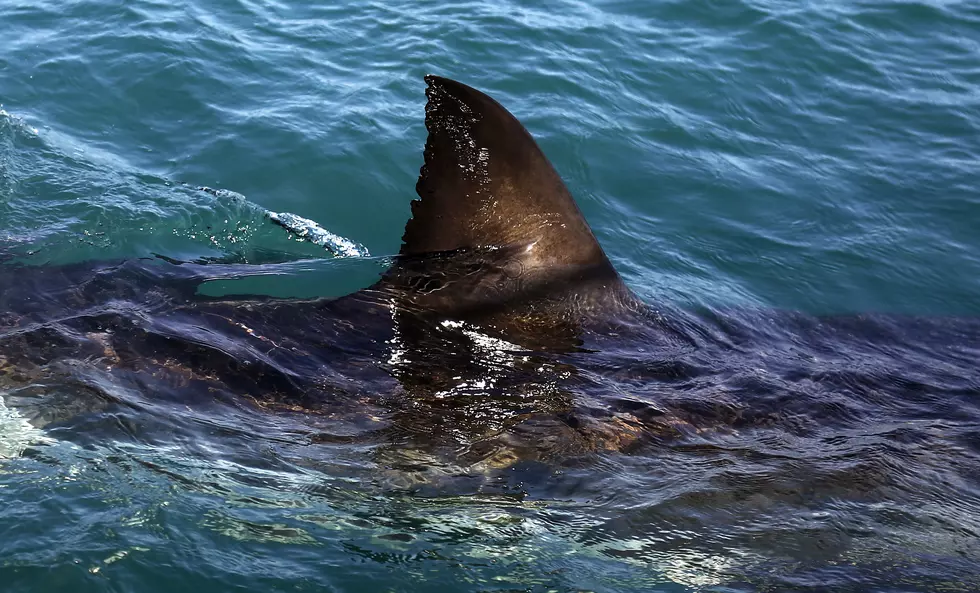
Shark activity is up at the Jersey Shore this summer
🌊 Shark activity is on the rise off New Jersey waters, but why?
🌊 Sharks are drawn to Jersey waters as nurseries
🌊 Shark attacks in New Jersey are very rare
"Duuuunnnn duun..."
“Jaws” fans know those two terrifying notes all too well.
Unfortunately, in real life, there are no ominous musical notes to let us know if a shark is nearby at the Jersey Shore.
There has been an uptick in near-shore shark sightings in New Jersey this year, and in the past few years, as well, said Rich Weddle, curator at SEA LIFE Aquarium at the American Dream in East Rutherford.
Is the uptick in shark sightings related to the recent whale and dolphin deaths?
Not necessarily. Weddle, who also has a degree in marine biology, said it is probably related to increasing ocean temperatures inshore and some of the protection that has been given to bunker, which is the bait fish that these sharks eat, he said.
“The whales and dolphins washing up are a separate issue because most of our inshore sharks are not species that eat whales and dolphins. They mainly eat fish and crabs. So, the kinds of sharks that we find in New Jersey waters that might go after a dolphin or a scavenger whale carcass, are normally found further offshore,” Weddle said.
Sharks are also drawn to the Jersey coast, mostly for food. Many of the sharks that New Jersey sees are migratory. They head south for warmer waters in the winter and come up north in the summer, Weddle explained. With New Jersey water temperatures being warmer, the sharks are coming here earlier and staying longer.
But, the abundance of bait fish off the waters of New Jersey is what really attracts sharks.
Besides warmer ocean temperatures and an abundance of bait fish, sharks are also drawn to New Jersey waters as nurseries.
“Several species including Sandbars and Sand tiger sharks will actually have their young in some of the shallow bay water off the coast of New Jersey where it’s protected and the sharks can feed and grow there, protected from open water predators for a while,” Weddle said.
What sharks are found in New Jersey waters?
The three most common near-shore shark species found in New Jersey include Sand tiger sharks, Sandbar sharks, and Dogfish. The Sandbars can grow to about 8 feet long. The Sand tiger can get up to 8 to 10 feet long and Dogfish is a smaller species of shark that can grow to about 4 feet long, Weddle said.
Offshore and in deeper waters off New Jersey, the most common species of sharks spotted include Blacktips, Threshers, Makos, and Great Whites, which are not unusual to find off the Jersey coast, he said.
There has also been some research in recent years that seems to indicate that Great Whites use the New York Bight which is the body of water off the coast of Northern New Jersey and Southern Long Island as a nursery, Weddle explained.
What should you do if you see a shark in the water?
It’s very important to stay calm and make your way back to shore.
“My top piece of advice I give everybody is to not swim on unguarded beaches.
Lifeguards are very, very good at spotting the signs of sharks in the area, whether it be the shark in itself, or more often, a large school of bait fish, and they will pull people out of the water when that danger exists,” Weddle said.
A big school of bait fish is pretty easy to spot he says. They will make a ripple on the water’s surface. These bait fish are being driven to the surface by larger fish below like Bluefish and Striper. Then sea birds will dive down to scoop up the bait fish. All that activity from both above and below can attract sharks looking to feed, Weddle explained.
How can you avoid a shark attack in the water?
Shark attacks are rare, Weddle said. In fact, getting caught in a riptide in New Jersey waters is more likely to happen than a shark attack, he added.
Since the 1960s, he said there have only been three shark attacks in New Jersey and none of them were fatal. So, the chances of being bit are very slim.
Humans pose a much greater danger to sharks than they do to us. Looking at the population numbers, sharks and stingrays worldwide have seen roughly a 70% decline in the last 50 years, Weddle said.
“We are starting to do a better job at protecting them. We’ve seen some species like the Great Whites, where it looks like their numbers are on the rebound. This is a very good thing. They pose such a small risk to humans and they play such an important role in the ecosystems,” Weddle said.
But, to avoid an attack, Weddle said he cannot stress enough to only swim in the ocean when lifeguards are on duty.
Keep an eye out for schools of bait fish that are inshore.
When you go to the beach and you see a sandbar (a sudden shallow section), avoid being on the outside edge of that sandbar where the water drops off deep again. Weddle said those drop-offs are very popular hunting grounds for sharks.
Weddle also advised to not go into the ocean with an open wound where there is bleeding. Sharks have a very keen olfactory sense and will pick up the scent of blood, attracting them to the source.
Just remember that when you go to the beach and you go for a dip in the ocean, you are in the shark’s world. Just be respectful, be aware of your surroundings, and remember that the risk of being bitten is extremely minimal, Weddle said.
Report a correction | Contact our newsroom



